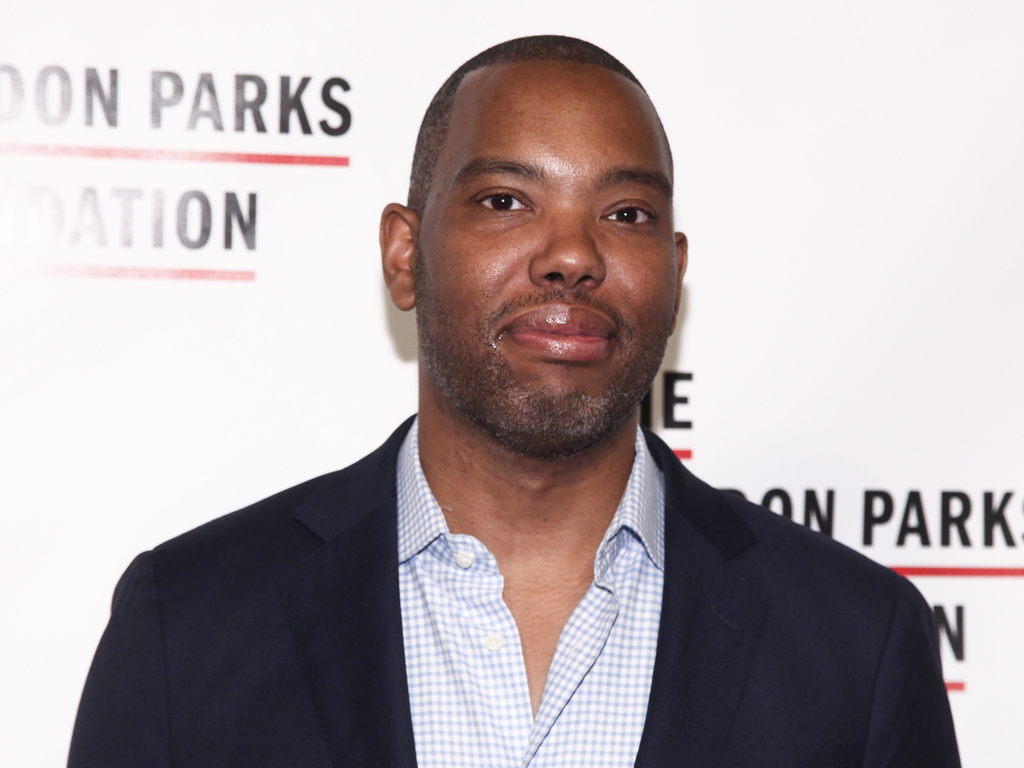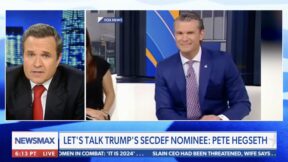‘I Just Don’t Want to Hear’ It: Ta-Nehisi Coates Tells Ezra Klein Why He Didn’t Speak to Mainstream Israelis For Book

Photo by Andy Kropa/Invision/AP, File
New York Times columnist and podcast host Ezra Klein spoke to author Ta-Nehisi Coates, who has sparked fierce debate in recent weeks with his new book of essays, “The Message.”
Klein wrote a blurb to introduce the conversation and highlighted Coates’s recent headline-grabbing moments, including a highly talked-about interview on CBS with Tony Dokoupil.
“Coates’s essay is a searing portrait of Palestinian life under Israeli rule. It has also been criticized for leaving much out: Hamas is never mentioned. Nor is Oct. 7. Nor are any of the peace processes. So I asked him on the show to discuss what he saw when he was there and what he chose to leave outside the frame,” Klein writes of Coates’s work.
During the Friday podcast, Klein asks Coates if he spoke to any Israelis representing what he characterized as mainstream opinions about the conflict within the country.
“Did you spend any time when you were there with people who I would classify politically as the Israeli right or the Israeli center? You went with ‘Breaking the Silence,’ which is an anti-occupation group, with a Palestinian literary festival. Did you go around with anybody who would say, ‘No, we’re doing the right thing here, or even we’re not doing enough here?’” Klein asked.
“Umm, no,” responded Coates.
“Why?” Klein replied.
“There are things in this world that I see that I just don’t want to hear the justification for, I just don’t think can be justified. I don’t want to hear–” Coates replied, adding:
I don’t know what I can glean from a justification for, and I’m talking about in an American context, segregation. I don’t know what necessarily I can glean from a justification for — hearing somebody like interviewing somebody say, tell me why this is what something’s come down to.
For me, it’s just a moral decision. And I actually think journalists do this all the time. I think we all draw a line somewhere about what we feel is out of bounds and what we feel is beyond. For me, I was willing to entertain probably a debate from people who were anti-occupation, but maybe not necessarily anti-Zionist. You know, maybe we’d be classified as liberal Zionist even all the way over to people who thought Zionism was a terrible idea and the worst thing that ever happened. The justification for settlements was outside of my frame.
“But that doesn’t wipe out all of Israeli society almost?” Klein pushed, again asking why in his 10-day trip he wouldn’t engage on the ground with the other side.
Coates replied, “I was concerned with what I don’t know and what I don’t– what I haven’t heard. And for me, Palestinian voices have been pushed so far out of the frame. Like that is the thing that is hard to access. And, you know, I think this is over simplistic, but I made a conscious decision, frankly, in the language, you know what I mean, actually, and how that is actually written. And even in how I pursued my reporting to do it from a certain angle, I don’t perceive it as a complete survey of, you know, settlements, Israeli society, etc…”
Coates’s recent appearances discussing his book have continued to make headlines since the CBS controversy, which saw Dokoupil face internal criticism and a public reprimand for not meeting editorial standards with his tone. On Friday, Coates’s recent appearance on Trevor Noah’s podcast was also going viral as outlets like Fox News wrote headlines like, “Ta-Nehisi Coates doesn’t know if he would be ‘strong enough’ to oppose Oct. 7 if he were a Gazan.”
Listen to Klein’s entire interview with Coates here.




